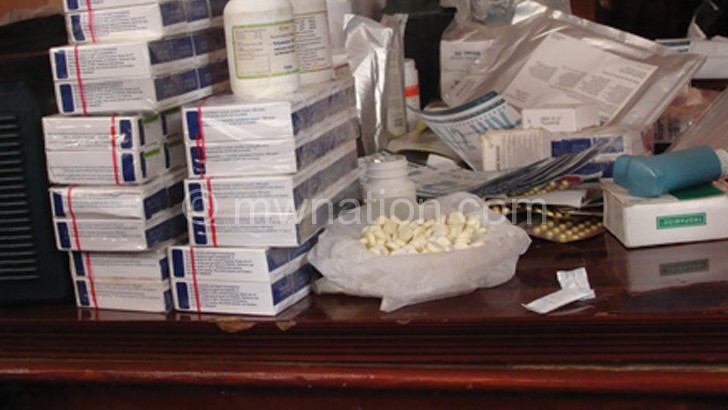Govt, Cham hospitals stock genuine drugs—Study
Public hospitals and Christian Health Association of Malawi (Cham) facilities stock genuine medical drugs, especially for malaria, compared to private hospitals, according to a College of Medicine (CoM) study.
The study also found that Malawi administers genuine medicines compared to other countries in African countries, including Nigeria.
The study was commissioned in the wake of increasing counterfeit or falsified medicines that have for a long time been addressed as a global pandemic which poses a threat to public health, especially in the poorest countries, including Malawi.
Speaking in an interview yesterday, Felix Khuluza, a pharmacist and principal investigator in the study, said most government hospitals passed the test and provide the public with genuine malaria drugs.
He said: “When we were conducting our research, we expected that government facilities will fail the test. But, to our surprise, the facilities passed the test. The medicine [they administer] is genuine and we are proud to say that this happened like that as we know government and Cham facilities serve a larger population of the country.”
CoM, one of the four constituent colleges of the University of Malawi (Unima), used Thin-Layer Chromatography (TLC) to detect counterfeit drugs from both the public and private hospitals as well as vendors with different systems tested using minilab to detect the quality of sulfacoxine/pyrimethamine(SP) and lumefentrine artermethen (LA).
Ministry of Health Principal Secretary Dan Namarika said he was happy that the results have verified genuine medicines in government hospitals and also hinted that the malaria drugs are available; hence, the populace needs not worry.
He said government facilities passed the TLC test because all the medicine they use come from the Central Medical Stores Trust (CMST) which makes routine checks on each batch of medicine it gives to people.
Malawi Health Equity Network (Mhen) executive director George Jobe said the results of the study prove that as a country Malawi is serious with the health of its citizens.
The study was conducted with funding from GIZ. It cost K19 million.





